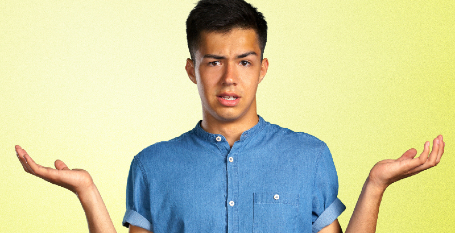LGBTQ people are always a minority - whatever country we live in, we will always be a minority in every sense.
While there is some power in being a bit unique, and standing out from the crowd, there are inherent risks and psychological strains in being a part of a minority.
Minority Stress Syndrome describes the health impacts that have been documented on any minority population. Minorities are generally exposed to a constant level of threat - real or perceived - and this has a material impact on their overall health and well-being.
In part, this explains why the health and well-being of queer people needs to be a constant focus. The health needs of LGBTQ people are similar to, but not the same as, the health needs of everyone else. That becomes most apparent when you look at some of the experiences regarding mental health and resilience, or the harm that manifests through chemsex or the PnP scene.
While the everyday stresses and strains of being a minority can generally be managed, it’s also important to be aware of events that might trigger a more extreme emotional roller-coaster for LGBTQ people.
An example of this is the attack on Pulse nightclub in Orlando, in June 2016. This was an armed attack on an LGBTQ club - 49 people were murdered and over 50 people were seriously injured. It’s little surprise that the Orlando attack not only made the LGBTQ community in the US feel vulnerable and less safe. What’s perhaps not as obvious is the way in which the impact of the Pulse nightclub attack reverberated around the world. For queer people, wherever they live, there was a tangible sense that if an LGBTQ bar in the US could be attacked, targeted in a homophobic hate-crime, it makes it almost impossible to feel safe anywhere.
While enormous progress has been made in some parts of the world in terms of equality for LGBTQ people, there are plenty of places and circumstances in which the risk of harm, the threat, is clear and present.
What can we do about it? We need to take a two-prong approach. Firstly, as individuals, we need to take care of ourselves. We need to make sure that we’re looking after our own health and well-being. Just like the in-flight safety videos, you have to put your own oxygen mask on before you help others. With our own resilience secure, we need to work together to help support and protect LGBTQ people around the world. Yes, marriage equality is important, but there are places such as Chechnya, Egypt, or Iran where LGBTQ people are being systematically targeted, punished, killed, just for being who they are. There are plenty of places and circumstances where simply being queer makes you unsafe and vulnerable.
Let’s look after ourselves. Let’s look after each other. We may be a minority but when we work together our voice becomes powerful.
LGBTQ people are always a minority - whatever country we live in, we will always be a minority in every sense.
While there is some power in being a bit unique, and standing out from the crowd, there are inherent risks and psychological strains in being a part of a minority.
Minority Stress Syndrome describes the health impacts that have been documented on any minority population. Minorities are generally exposed to a constant level of threat - real or perceived - and this has a material impact on their overall health and well-being.
In part, this explains why the health and well-being of queer people needs to be a constant focus. The health needs of LGBTQ people are similar to, but not the same as, the health needs of everyone else. That becomes most apparent when you look at some of the experiences regarding mental health and resilience, or the harm that manifests through chemsex or the PnP scene.
While the everyday stresses and strains of being a minority can generally be managed, it’s also important to be aware of events that might trigger a more extreme emotional roller-coaster for LGBTQ people.
An example of this is the attack on Pulse nightclub in Orlando, in June 2016. This was an armed attack on an LGBTQ club - 49 people were murdered and over 50 people were seriously injured. It’s little surprise that the Orlando attack not only made the LGBTQ community in the US feel vulnerable and less safe. What’s perhaps not as obvious is the way in which the impact of the Pulse nightclub attack reverberated around the world. For queer people, wherever they live, there was a tangible sense that if an LGBTQ bar in the US could be attacked, targeted in a homophobic hate-crime, it makes it almost impossible to feel safe anywhere.
While enormous progress has been made in some parts of the world in terms of equality for LGBTQ people, there are plenty of places and circumstances in which the risk of harm, the threat, is clear and present.
What can we do about it?
We need to take a two-prong approach.
Firstly, as individuals, we need to take care of ourselves. We need to make sure that we’re looking after our own health and well-being. Just like the in-flight safety videos, you have to put your own oxygen mask on before you help others. With our own resilience secure, we need to work together to help support and protect LGBTQ people around the world. Yes, marriage equality is important, but there are places such as Chechnya, Egypt, or Iran where LGBTQ people are being systematically targeted, punished, killed, just for being who they are. There are plenty of places and circumstances where simply being queer makes you unsafe and vulnerable.
Let’s look after ourselves. Let’s look after each other. We may be a minority but when we work together our voice becomes powerful.












 列印版本
列印版本




















讀者回應
搶先發表第一個回應吧!
請先登入再使用此功能。